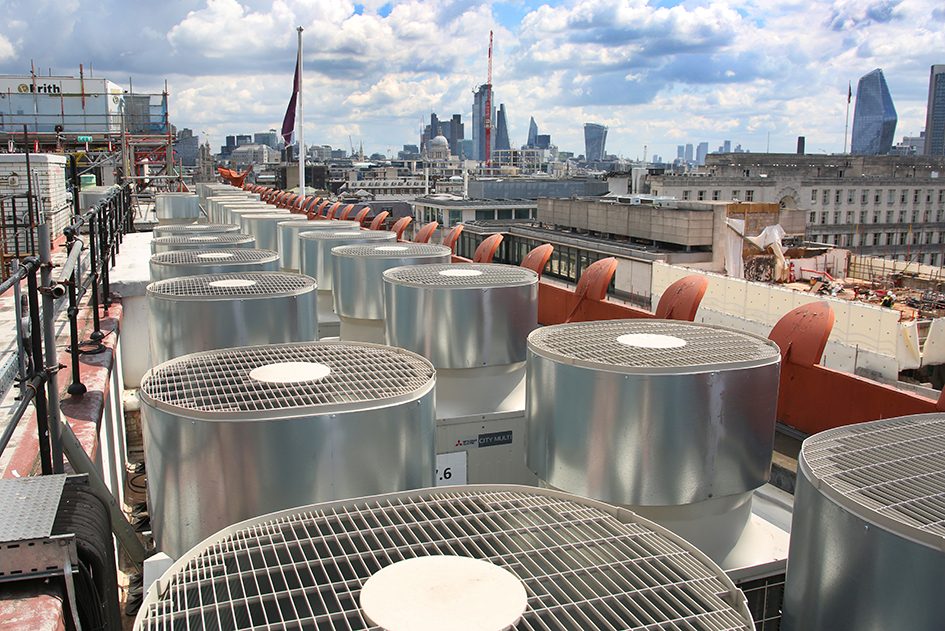If you have ever been to theatre-land in London, then you can’t have missed the renowned Strand Palace Hotel, which has been welcoming guests since 1909. The Hotel’s central location along with its quirky contemporary décor mean guests expect a high level of comfort and experience during their stay.
The hotel has chosen Mitsubishi Electric’s innovative Hybrid VRF air conditioning system to provide cooling and comfort throughout its site, with plans to install over 700 units by April 2020. With an average daily occupancy of 87%, it was crucial that the hotel remained fully operational during installation to minimise loss of revenue and disruption to guests. The project, which is the largest installation of its kind in Europe, began in November 2017 and nearly 488 of the 785 rooms have been refurbished so far.
The Strand Palace knew that modernising its heating and cooling systems was fundamental to maintaining a quality experience for guests. Ensuring high levels of energy efficiency was also a factor considered during this process.
“The cost saving potential from increased control of heating and cooling, lower maintenance requirements and minimal disruption to the hotel were all very important, as was the ability to reduce energy consumption,” explained David Abercrombie, Chief Engineer of Strand Palace. The Hybrid VRF system was a perfect solution, with its unique 2-pipe system allowing for simultaneous heating and cooling with heat recovery.
Increased efficiency was possible through use of a central controller, which allows heating and cooling to be switched off in individual rooms, while keeping other rooms at the optimum temperature. This saves energy as there is less work to do when occupants turn the systems back on. Individual room controllers are installed in each room and connected to the MELCloud app, which can be used to control and monitor Mitsubishi Electric products remotely. Live reports can also be obtained to help set usage targets for the future.
No leak detection
One major cost-saving benefit is that there is no need for leak detection. As water is used as the heat transfer vehicle, refrigerant only enters the Hybrid Branch Controller (HBC) boxes, of which there are six or seven per floor, rather than any of the hundreds of guest rooms. As a result, no monitoring or detection system is needed to be set-up or maintained.
As the Hybrid VRF could be installed floor by floor, it provided the perfect solution for the hotel. Ted Connell, specifier and designer at Elementa, said “many different systems were assessed, but the modular installation of the Hybrid VRF made it stand out as the right option for The Strand.
“With this system, it was possible to complete the installation floor by floor, even half a floor at a time where necessary, allowing the hotel to remain open during the process. This phased approach also solved the problem of limited roof space for a chiller system, making the Hybrid VRF the natural choice all round.”
Ease and flexibility of installation was another important factor, and the Hybrid VRF’s slimline vents, which work within the hotel’s existing ceiling voids, were of huge benefit during the process.
Mark Harry of installer, Working Environments said “The system was incredibly easy to fit as it was familiar to the installers, having been designed to mirror the set-up of a traditional VRF.”
The installation of the Hybrid VRF systems has minimised environmental impact, avoided disruption to the hotel’s business and averted the need for high maintenance bills.











